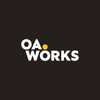Students Launch “Button” to Put Denied Access to Research on the Map
FOR IMMEDIATE RELEASE
November 18, 2013
Contacts:
Students Launch “Button” to Put Denied Access to Research on the Map
BERLIN — Today, at an international meeting of student advocates for expanded access to academic research, two undergraduates from Great Britain announced the highly-anticipated launch of The Open Access Button — a browser-based tool to map the epidemic of denied access to academic research articles, and help users find the research they need.
University students David Carroll and Joseph McArthur created The Open Access Button in response to their own frustrations with gaining access to the results of academic research.
“I realized there was a problem when, time after time, I ran into barriers accessing articles relevant to my research,” said Carroll, who studies medicine at Queens University Belfast. “My university is able to afford subscriptions to many journals, and yet I still can’t access everything I need. It made me wonder how many others have had the same experience, and how it is impacting people across the globe.”
Every day, people try to access academic research articles — doctors seeking the newest treatments, scientists working to develop new technology, students trying to further their education. But instead of the essential information they seek, too often these people are confronted by paywalls demanding a fee in exchange for access, sometimes as high as $40 per article. These paywalls exist because a large portion of the academic literature is published in expensive, subscription-based journals whose prices have outpaced inflation for several decades.
“With today’s ability to share knowledge over the web, it just doesn’t make sense that so much research is locked away from the majority of the world,” said McArthur, who studies pharmacology at University College London. “Until now, being denied access was invisible, because it happened to people individually. We created The Open Access Button to collect these separate experiences and to showcase the global magnitude of the problem.”
The Open Access Button is a browser-based tool that lets users track when they are denied access to research, then search for alternative access to the article. Each time a user encounters a paywall, he simply clicks the button in his bookmark bar, fills out an optional dialogue box, and his experience is added to a map alongside other users. Then, the user receives a link to search for free access to the article using resources such as Google Scholar. The Open Access Button initiative hopes to create a worldwide map showing the impact of denied access to research.
The Open Access Button takes its name from the global movement for Open Access — the free, immediate online availability of research articles, along with the rights to use these articles fully in the digital environment.
“Open Access is a powerful solution to the barriers that researchers in developing and transition countries face trying to access and share critical research that can improve people’s lives,” said Iryna Kuchma, Open Access Programme Manager for Electronic Information for Libraries (EIFL), which works with libraries worldwide to enable access to digital information for people in developing and transition countries. “And it should not only be academia who has access to the latest research results, but anyone who is interested — doctors and patients, farmers and entrepreneurs, educators and high school students.”
“The Open Access Button is helping democratize knowledge,” said Jack Andraka, a 16-year-old American high school student who won the Intel Science Fair by inventing a revolutionary test for pancreatic cancer. Andraka has spoken of being denied access to research when developing his test. “Knowledge shouldn’t be a commodity but freely available to empower patients and families.”
Carroll and McArthur announced The Open Access Button’s launch today in front of a crowd of more than 80 at the Berlin 11 Student and Early Stage Researcher Satellite Conference, an international meeting for students interested in Open Access advocacy. The meeting is a precursor to the Berlin Open Access Conference, a convening of thought leaders across the globe on the issue of Open Access, which commences Tuesday.
“It’s crucial to remember that too often, we take for granted that the status quo simply ‘is what it is,’ but the developers of the Open Access Button remind us that we, as individuals, actually have the power to change things,” said Heather Joseph, Executive Director of the Scholarly Publishing and Academic Resources Coalition (SPARC) and an internationally renowned leader in the Open Access movement. “It’s a simple, yet incredibly creative idea, that should help show just how deep the need for Open Access truly is.”
More information about The Open Access Button, including instructions for installing it, can be found at www.OpenAccessButton.org.
Follow the conversation on Twitter at @OA_Button and hashtag #oabuttonlaunch.
Background
Open Access Button: http://www.openaccessbutton.org
More information on Open Access: http://sparc.arl.org/issues/open-access
Berlin 11 Student and Early Stage Researcher Satellite Conference: http://www.righttoresearch.org/act/berlin11/
Berlin Open Access Conference: http://www.berlin11.org/
###
The Open Access Button is an initiative of Medsin, the UK’s student global health network tackling global and local health inequalities through education, advocacy and community action. More information about Medsin can be found at www.medsin.org.

